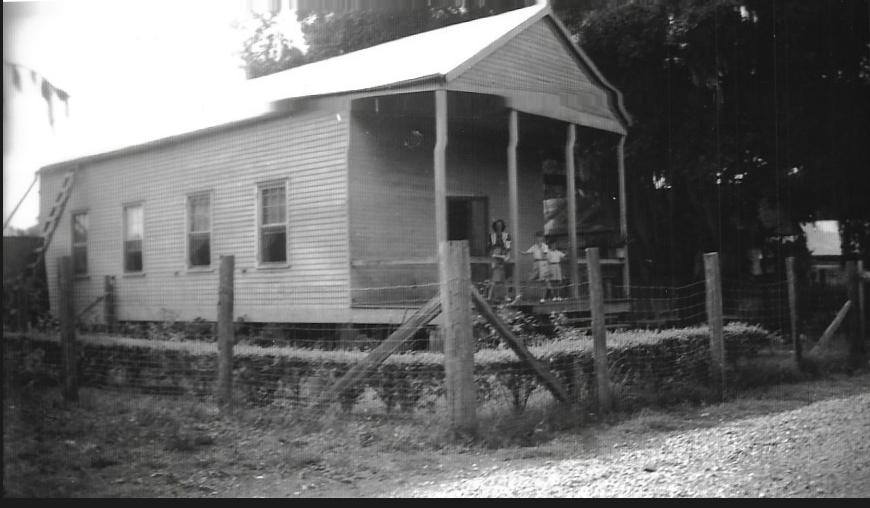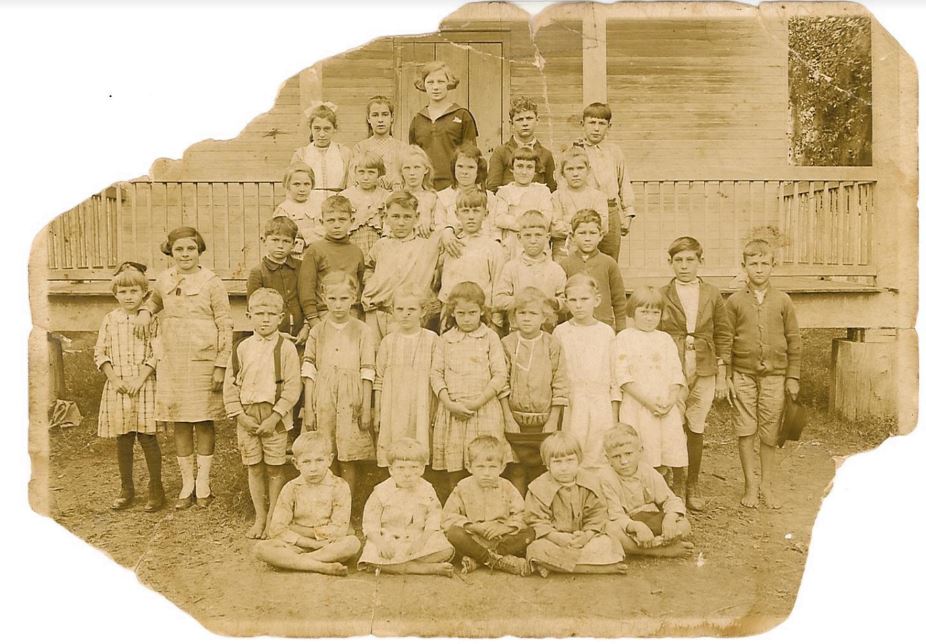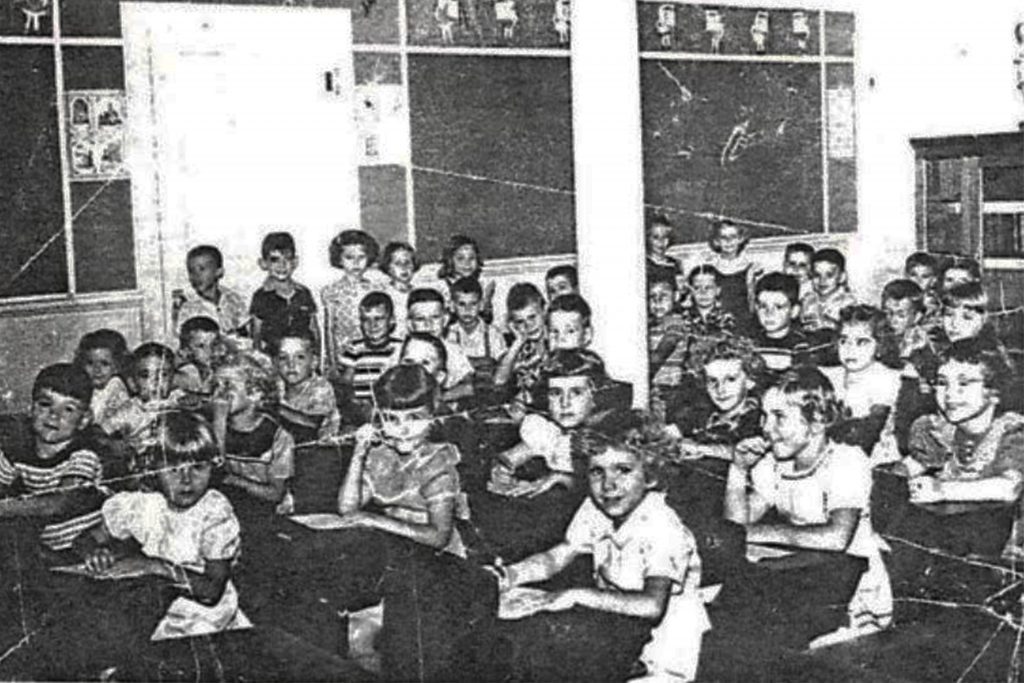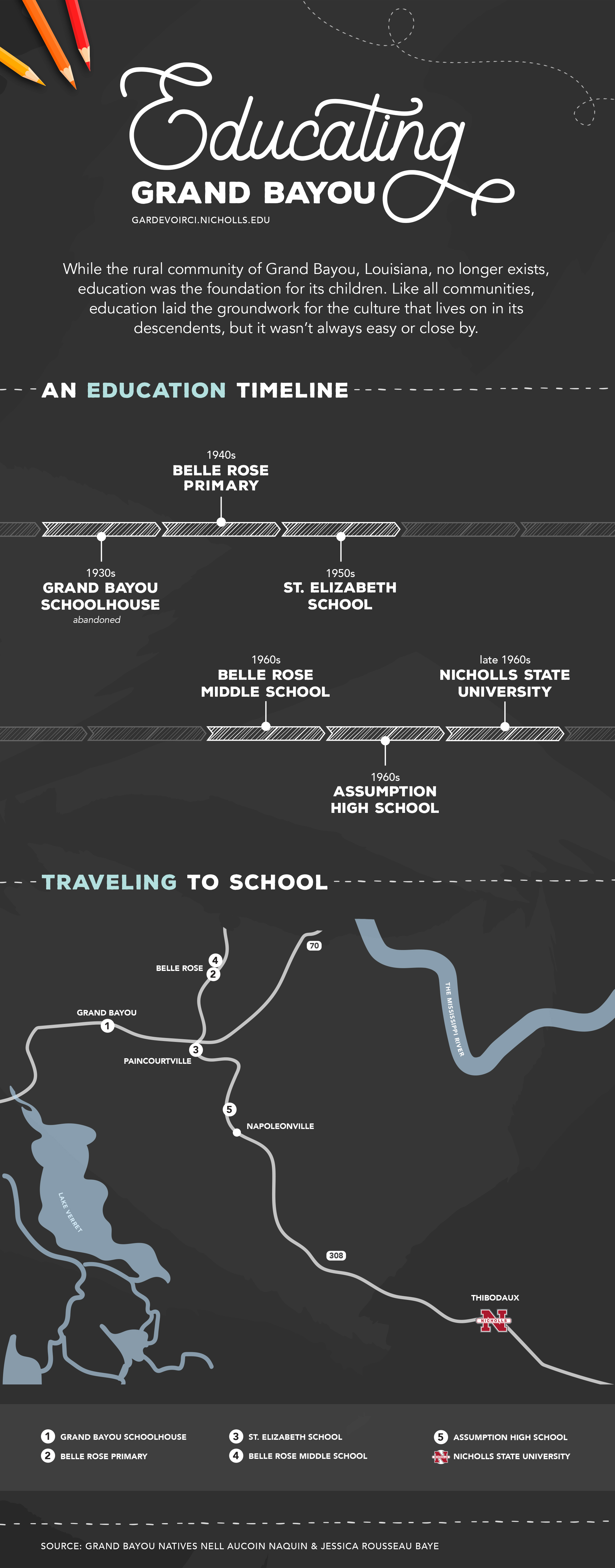By Shaun Breaux, Features Editor
Grand Bayou may not have been the biggest or most developed area, but for the people born and raised in this bayouside community, they made it work not only out of necessity, but because they enjoyed their way of life.
“Being five miles away from everything, like the grocery store, church and school, we were kind of isolated in our own little beautiful community,” says Jessica Rousseau Baye, Grand Bayou native. “We had a wonderful childhood; we didn’t know that there was anything different to us.”
Nell Aucoin Naquin, Grand Bayou native, says that although there may not have been many industrial places in the community, to them, there was a lot around.
“I mean there was the great outdoors. The world was ours,” Naquin says. “We got to swim in the bayou everyday, we got to walk in the woods and look at all the animals and the creatures. We got to fish and supply our food from the animals, the land and the bayou. We grew our own food, so there was a lot to do and see.”
Grand Bayou’s lone schoolhouse was abandoned in the 1930s. Once roads improved, children were able to travel or be picked up by bus to attend school five miles down the road in the nearby town of Paincourtville.
Naquin says that old schoolhouse was where she was born and raised until she was about four years old.
“My mom and my dad turned that house into our home. Eventually my momma bought that property and the building, tore the schoolhouse down and used the lumber from the schoolhouse to rebuild the house that I pretty much grew up in,” Naquin says.
The children of Grand Bayou during Naquin’s childhood in the late 1950s attended St. Elizabeth’s School in Paincourtville about five miles away. They went to Catholic school until 7th grade and were taught by nuns. Baye says the Catholic foundation was essential for their education.
Tuition for Baye and her siblings was $3 per person per month around this same time. Baye says for the four of them, that $12 was hard to come by. She says she remembered her parents struggling during some months, as Baye’s father worked as a small farmer on leased land.
“Still, We always had a car, and we always ate well. I never felt poor, but when I became an adult, I knew we had been poor,” Baye says.
From there, they attended 8th grade six miles away in Belle Rose and Assumption High in Napoleonville for high school 11 miles away.
After high school, Naquin rode the public bus from Grand Bayou to Nicholls State University every day until graduation. Nicholls is located in Thibodaux, around 30 miles from Grand Bayou.
Naquin says she knew a lot of Grand Bayou residents, herself included, who would not have been able to get a college degree if the parish would not have sent school busses to pick them up and bring them to Nicholls. She says she rode the school bus for her entire educational career and was thankful for the bus that picked them up every day.
The generation before them had more than just a bus ride to endure. Baye says her mother went to school in Belle Rose, but it only went up to 11th grade. After graduation, her mother started teaching in Pierre Part, which she had to get to by boat.
“My mother taught second grade with an 11th grade education. She was a very smart lady,” Baye says.
Baye’s father only had a fifth grade education, but he continued to teach himself.
“During the war, he was always reading Time Magazine and Newsweek Magazine, so he was self-educated. I think that when you’re in the war and you travel to other parts of the world that’s education in itself,” Baye says.
The former residents of Grand Bayou talked about their childhood much like other rural communities of the 1950s. Yet unlike those communities, they had the bayou to explore, gaining an entirely different type of education and set of skills.




